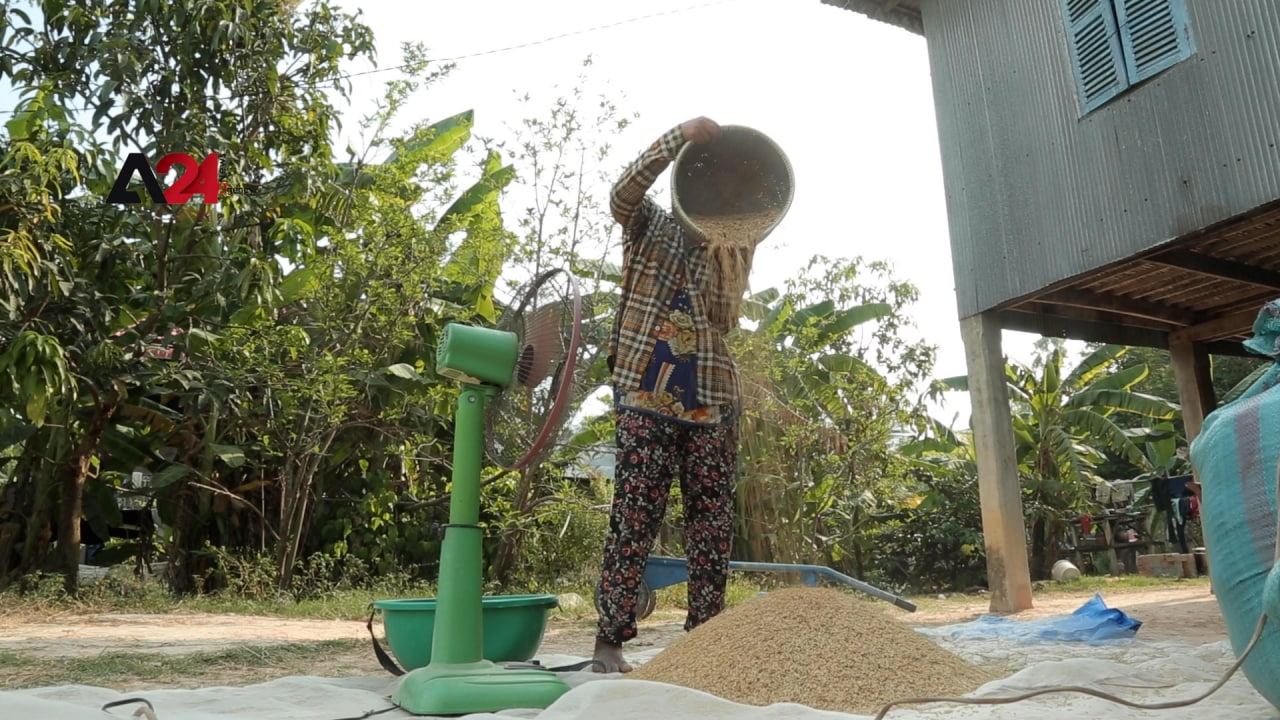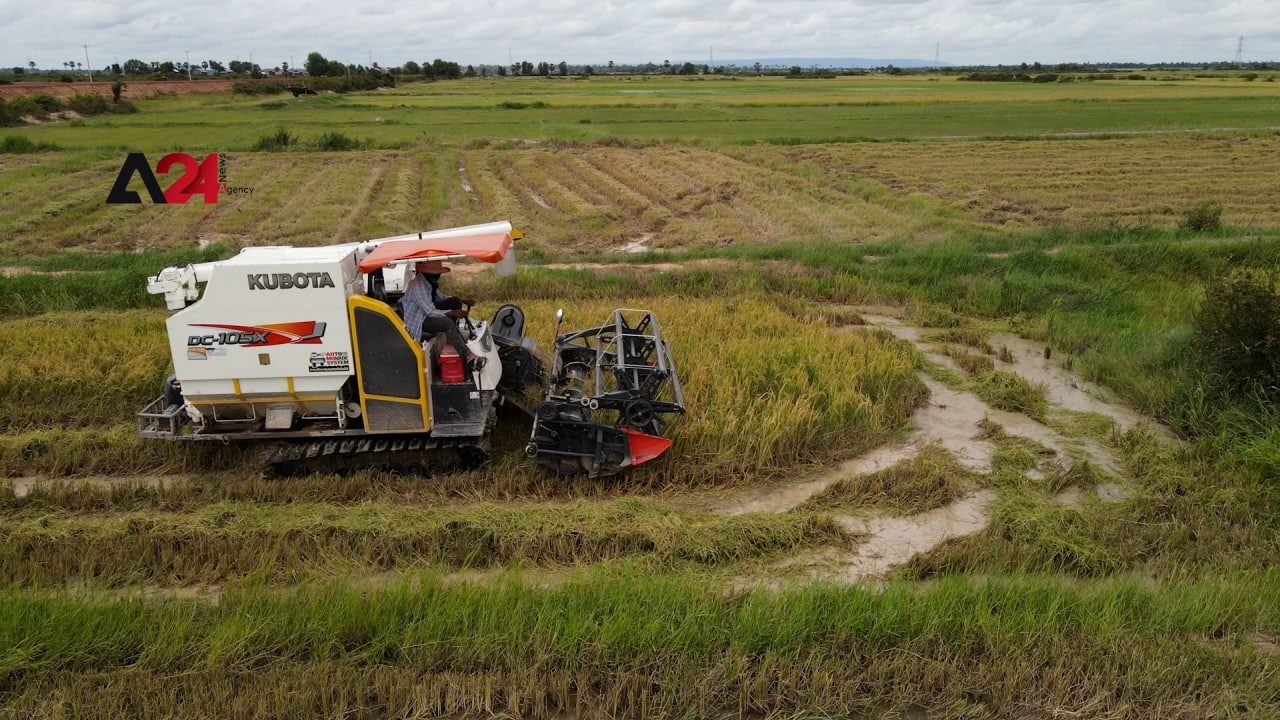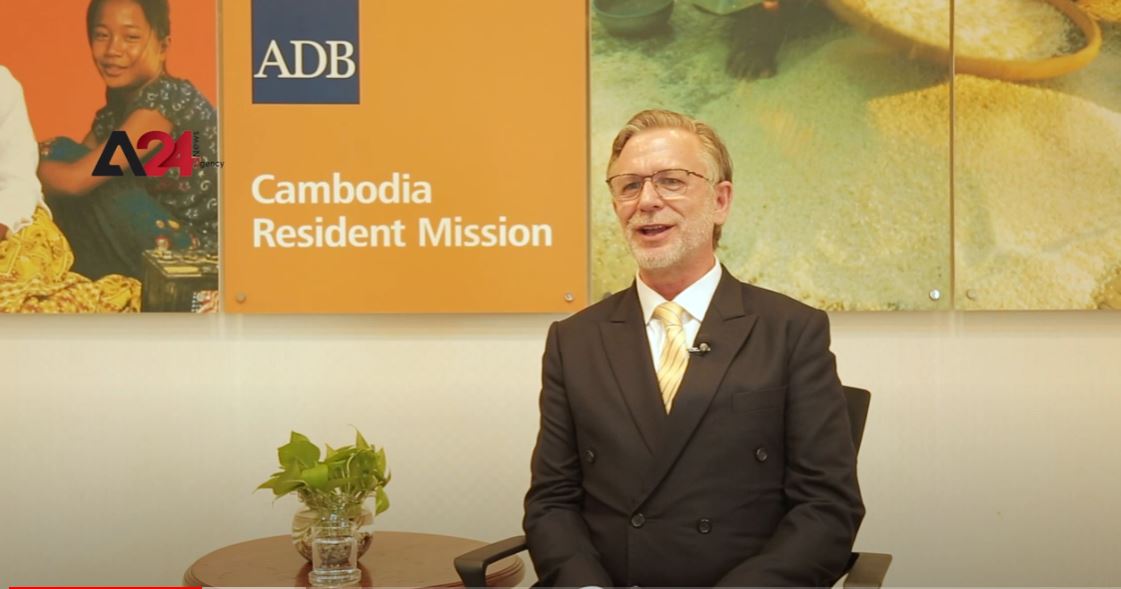PHNOM PENH: The Asian Development Bank is putting its weight into modernizing and transforming the predominantly subsistence rice sector in Cambodia into a commercially oriented industry by launching a climate-friendly rice commercialization project.
According to ADB Acting Country Director for Cambodia, Anthony Gill, this project to take care of land and water resources by using organic fertilizers, is aimed at supporting smallholder farmers in Cambodia, to help them out of poverty and enable them to get better access to rice markets both in Cambodia and abroad.
“The project really tries to address the constraints that these smallholder rice farmers face, which is a lack of access to the inputs for rice farming, such as seed rice, and also a lack of access to the markets to sell the rice at a good price," he said.
He further added, “We’re also introducing a climate-friendly rice insurance scheme that enables the smallholder farmers to insure against a bad climate outcome. So as climate change has a negative impact in any particular year on the rice yield, then automatically they will receive compensation for that lack of output through this insurance scheme.”
The project will help farmers in the largest rice-producing provinces of Battambang, Kampong Thom, and Prey Veng to increase production and efficiency along the rice value chain. It will also help to strengthen agricultural resource management.
Farmers in these provinces have discussed the benefits of utilizing organic over chemical fertilizers like the ADB project encourages. One farmer, Yat Vuthy, talked about the profit he’s made from switching to organic fertilizer.
"This year I farmed only 0.8 hectares, but I got better profits than in previous years. I earned a profit of nearly two million riel. One factor which made farming more profitable was because I switched from using chemical fertilizers to organic and safe fertilizers," he said.
Yat Vuthy added that when he used to farm using only chemical fertilizer, the yield during harvest would be very little leading to low profits, and he would almost not have enough to just pay off the debt to buy chemical fertilizers.
In January, ADB approved a $3.9 million-dollar grant to benefit about 22,000 smallholder rice farmers, by providing additional financing for ADB’s Climate Resilient Rice Commercialization Sector Development Program in the provinces of Battambang, Kampong Thom, and Prey Veng. About $3.8 million in grants comes from the Global Agriculture and Food Security Program, a global fund aimed at reducing hunger and improving nutrition in low-income countries.


Source: A24






















